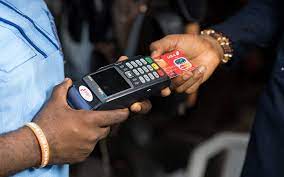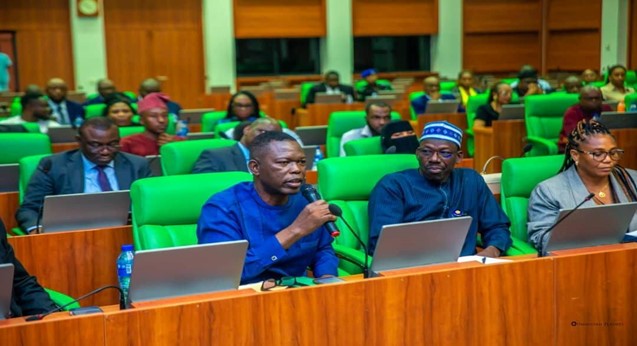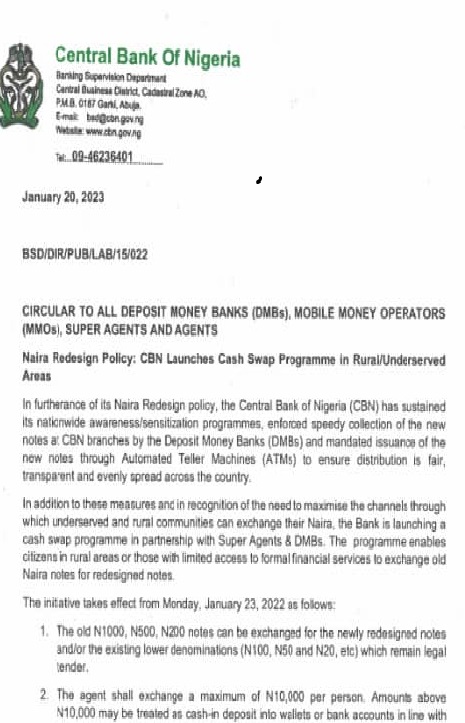Within a period of nine months (January-September), the volume of Point of Sales (PoS) transactions in Nigeria has increased by 24.3 percent, an indication that more Nigerians are going cashless.
BusinessDay analysis of the data from the Nigeria Interbank Settlement System (NIBSS) shows that its volume rose by 24.3 percent to 878.4 million in the first nine months of 2022 from 706.8 million in the same period of 2021.
Its value also increased by 32.6 percent from N4.6 trillion as at September 2021 to N6.1 trillion this year.
Experts say the growth of PoS transactions is bridging the gap created by the shortage of Automated Teller Machines (ATMs) deployed by banks, as many Nigerians now withdraw through PoS agents.
It is also an enabler for creating employment opportunities for Nigerian youths who are facing a high unemployment rate of 42 percent.
According to the Central Bank of Nigeria 2019 National Financial Inclusion Strategy document, the number of banking agents rose by 517 percent to 236,940 agents in December 2019 from 38, 416 agents in December 2018.
Also, a total of 568,488 additional PoS terminals have been deployed over the last nine months as the number of deployed machines stood at 915,519 as of December 2021.
The opportunity to make an additional income is a major motivation for becoming an agent, a 2020 Enhancing Financial Innovation and Access (EFINA) agent survey stated.
Read also: Nigeria is a desirable market for e-commerce – Glovo Manager
“Agents surveyed are signed up by different principals/service providers. Nevertheless, First Bank (First Monie), OPay, QuickTeller, and MTN top the list of principals with a majority share of agents.”
Apart from PoS transactions, mobile transfers also followed the same trend as its volume in the first nine months of 2022 amounted to 438.3 million, a 132.3 percent increase from what was recorded in the same period of 2021 at 188.7 million.
In terms of value, it recorded an increase rate of 152.9 percent year-on-year from N5.1 trillion to N12.9 trillion.
The volume of Nigeria Instant Payment (NIP) platform transactions also rose to 3.6 billion in the nine months, showing a 50 percent increase from 2.4 billion recorded in the same period of last year.
Correspondingly, from the NIBSS data, the volume of cheque transactions fell by 6.1 percent to 3.1 billion from 3.5 billion over the same period.
More consumers are shifting towards the use of electronic banking channels for financial transactions, says Gbolahan Ologunro, Gbolahan Ologunro, a senior research analyst at Cordros Securities.
“So, there is an increased use of digital channels for transactions and mobile payments.”
A 2021 Global Findex report by the World Bank stated that higher adoption of mobile money is driving the growth of account ownership in financial institutions particularly in Sub-Saharan Africa (SSA) countries like Nigeria.
The report showed that the country’s banked population increased by 15.6 percentage points to 45.3 percent in 2021, the highest in 10 years from 29.7 percent in 2011.
“Mobile money has become an important enabler of financial inclusion in Sub-Saharan Africa especially for women as a driver of account ownership and of account usage through mobile payments, saving, and borrowing,” the report added.
In 2012, the Central Bank of Nigeria (CBN) introduced the cashless policy which was meant to curb excessive handling of cash and to curtail the volume of cash in circulation.
More importantly, the policy was introduced to drive development and modernisation of payment systems capable of placing Nigeria among the top 20 economies in the world.
Over the years, NIBSS says Nigerian banks have exposed NIP through their various channels, including internet banking, bank branch, kiosks, mobile apps, USSD, POS, and ATM, to their customers.




